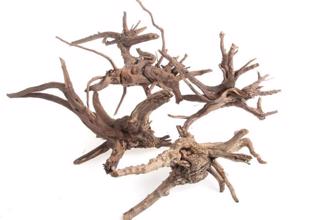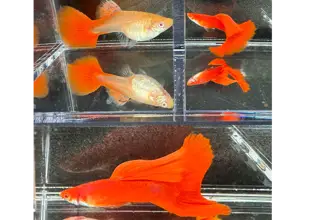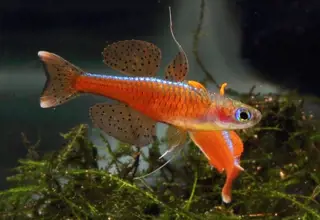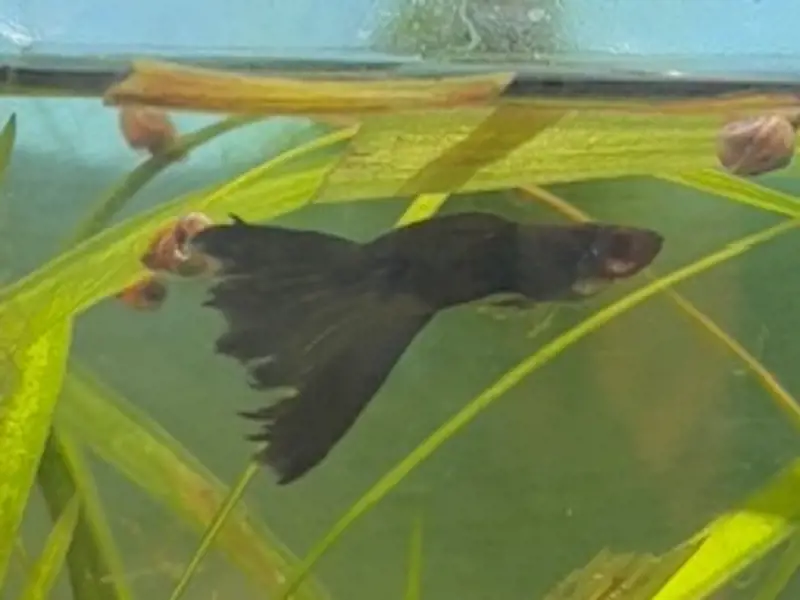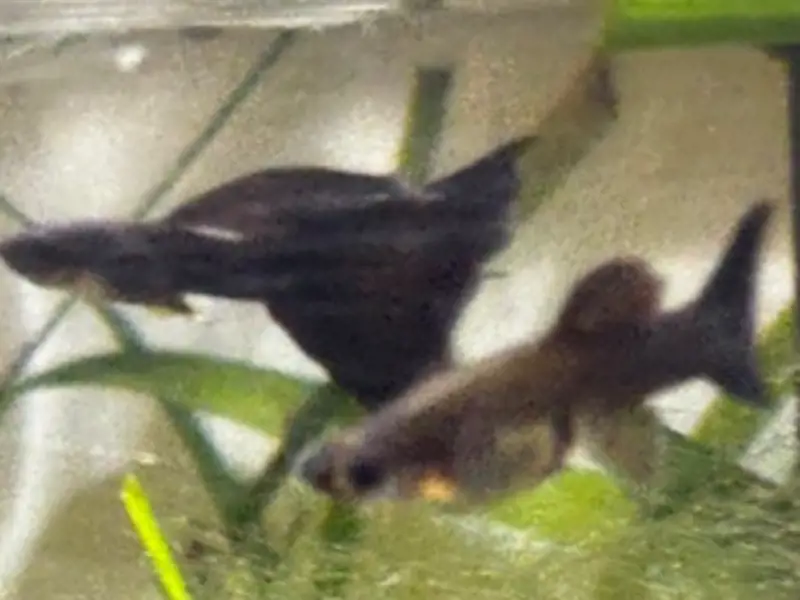10 Best Inverts for a Reef Tank
Posted by on 08/24/2023
While corals and anemones often steal the show in a reef tank, you can turbo-charge your tank's appearance by adding some reef-friendly invertebrates. In this post, we're going to recommend 10 great inverts that you can add to your reef aquarium.
Our Top 10
Hobbyists who are considering adding inverts to their reef tanks should be warned. Many species of saltwater invertebrates have developed quite a reputation for moving things around the tank, hiding during the day, and even picking at precious coral.
Before adding inverts to your tank, always have an established quarantine tank, or separate tank, at the ready in case you need to relocate your livestock.
Sexy Shrimp
With a name like "Sexy Shrimp", it's no surprise that the species is incredibly popular among reefers and saltwater hobbyists. Sexy shrimp (scientific name: Thor amboinensis) are known for their striking appearance, but most notably for their unique dancing behavior.
Their small size makes them a popular option for nano reef tanks, and there's no doubt that hobbyists will enjoy their interesting personalities.
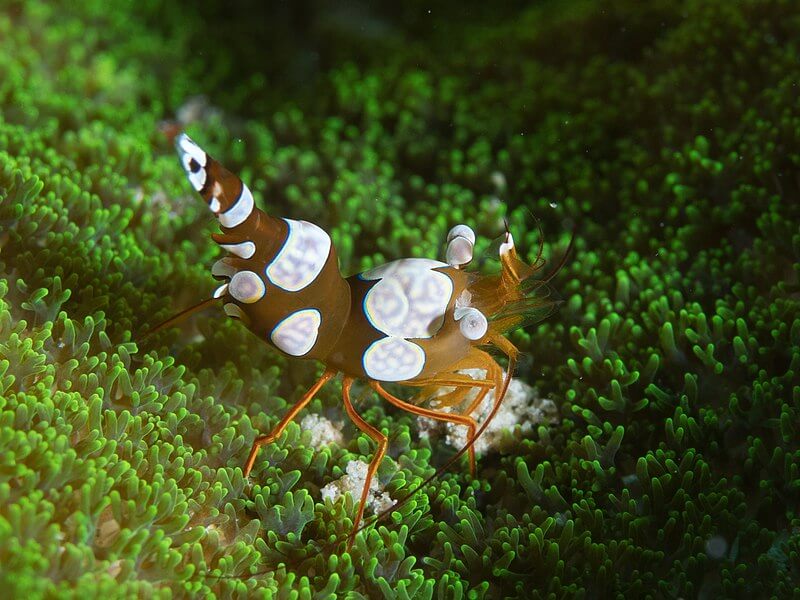
Serpent Starfish
Known for their snake-like appearance, Serpent Starfish (scientific name: Ophioderma cinereum) are known for being reef-safe, making them a popular option for hobbyists looking to add invertebrates to their tanks.
Varying in appearance, these inverts reproduce rapidly and have arms that can grow to reach about 6-8 inches in length.
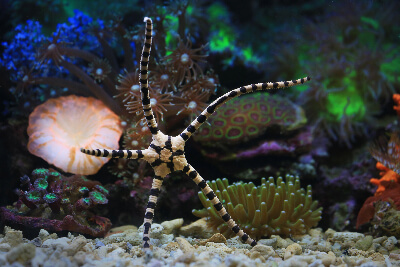
Blue Tuxedo Urchin
Next on our list is the Blue Tuxedo Urchin (scientific name: Mespilia globulus.) The species is quite active at night, where it will feed on algae along the sandbed. Named after the blue-colored bands separated by its red and black spines, the species is quite small, only growing to about 3 inches in size.
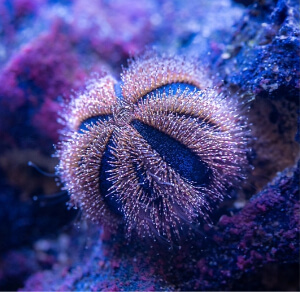
Bumblebee Snails
The yellow and black shell pattern makes the Bumblebee Snail an exciting addition to a saltwater aquarium. With an appearance resembling the freshwater assasin snail , this snail falls under the Engina genus and is highly effective at cleaning uneaten foods and detritus in hard-to-reach areas.
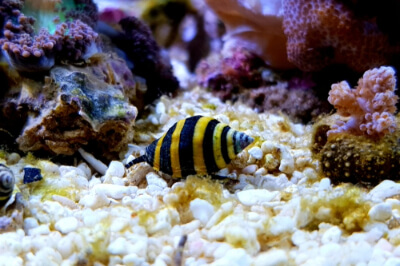
Strawberry Crab
The Strawberry Crab (scientific name: Neoliomera pubescens), also known as the Red Boxing Crab, is an uncommon marine crab native to the islands of Hawaii.
These crabs are known omnivores and will consume available algae present in a reef tank. Only growing to be about 2 inches in length, the species makes an excellent addition to a tank's clean-up crew.
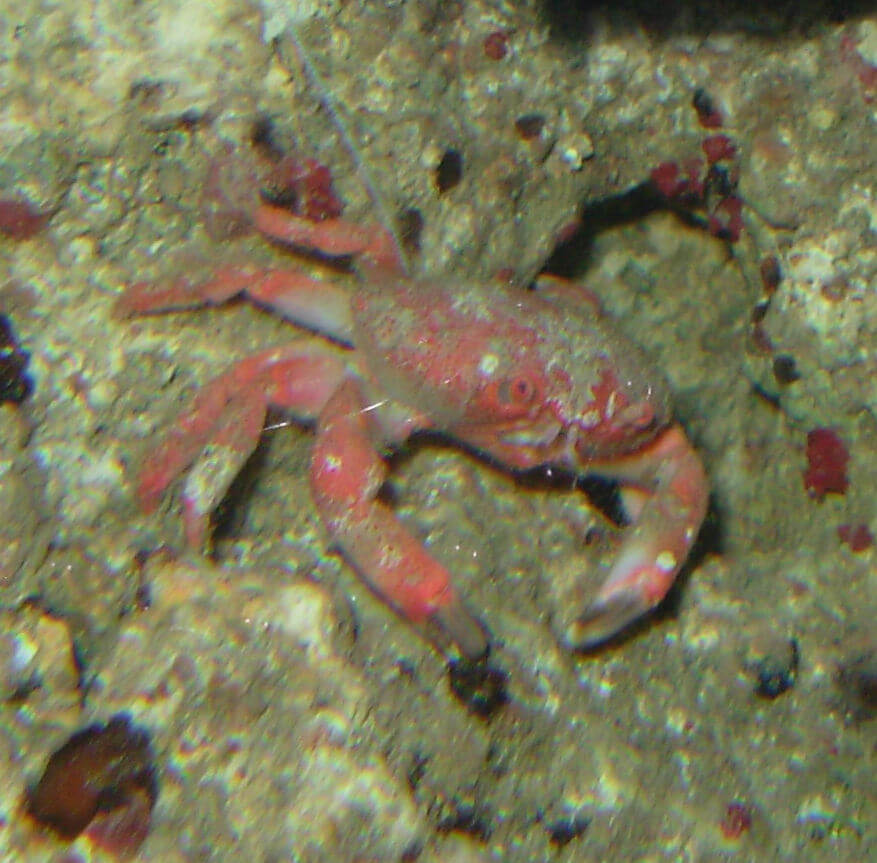
Pom Pom Crabs
Arguably one of the most interesting invertebrates on the list is the Pom Pom crab. These comical inverts hold two small anemones in their claws, which they wave in the air to ward off potential predators.
Best of all, if one of the anemones is lost, the crab will propagate the other anemone to replace its lost "pom-pom". Easy to care for, the species also serves as an excellent scavenger, keeping a reef tank spick and span.
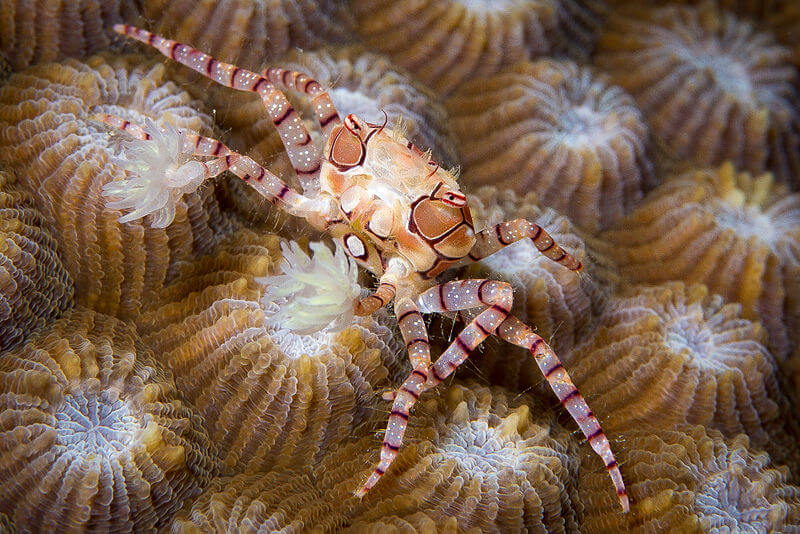
Harlequin Shrimp
Known for their white-colored bodies adorned with blue spots, the harlequin shrimp is an attractive-looking invertebrate but requires a very specific diet. The species primarily feeds on starfish (Asterias rubens), and hobbyists will need to maintain pristine water conditions while caring for the species.
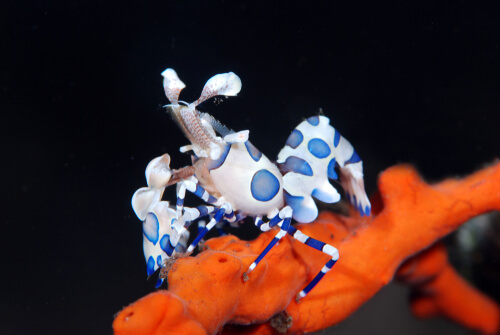
Skunk Cleaner Shrimp
Perhaps the most commonly seen invertebrates on our list is the Skunk Cleaner (scientific name: Lysmata amboinensis). The species is known for its unique cleaning behavior. Fish will frequently visit a Skunk Cleaner, and the shrimp will proceed to clean off dead tissue on any fish who wishes to use its services.
Native to the Indo-Pacific, Skunk Cleaners are a reef aquarium staple, and grow to about 2 inches in length.
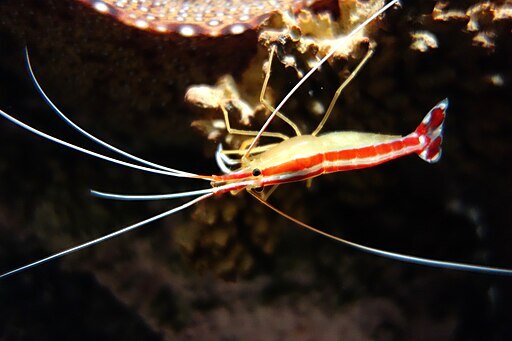
Fighting Conch
Contrary to the species's common name, the Fighting Conch is a peaceful invertebrate that provides plenty of value in a reef tank.
These inverts are incredibly hardy, will consume any available fish waste, and aerate the sandbed. They're big feeders and will require a supplemental diet consisting of nutrient-rich algae wafers.
There are two species referred to as fighting conches, and they are the Strombus alatus and Strombus pugilis.
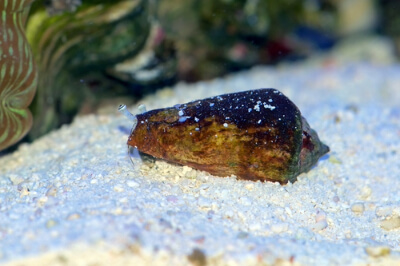
Coral Banded Shrimp
Reaching about 6 inches in length with their antennas, Banded Coral Shrimp (scientific name: Stenopus hispidus) have a distinct red and white appearance. Members of this family of invertebrates have large pinchers and serve as excellent scavengers in a reef aquarium.
They're quite peaceful and are some of the most widely distributed shrimp in the world's oceans. With an active personality, they'll steal the spotlight in a saltwater reef tank.
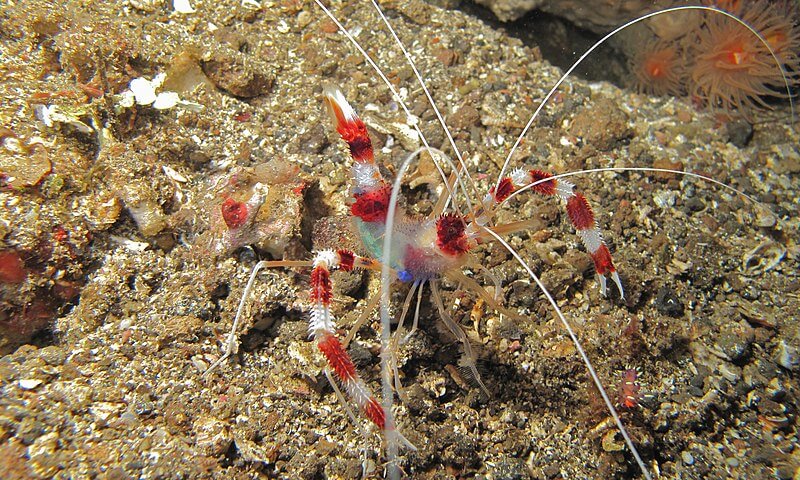
Conclusion
As you can see, there is no shortage of options when it comes to invertebrates in a reef aquarium. Even invasive species, like stomatella snails, can serve a meaningful purpose for a well-balanced reef ecosystem.
Now that we've provided you with a few options, which do you think you'll go for? Let us know in the comments if you plan on adding a few of these to your tank, and be sure to visit our marketplace where you can buy saltwater inverts from hobbyists and small businesses.
